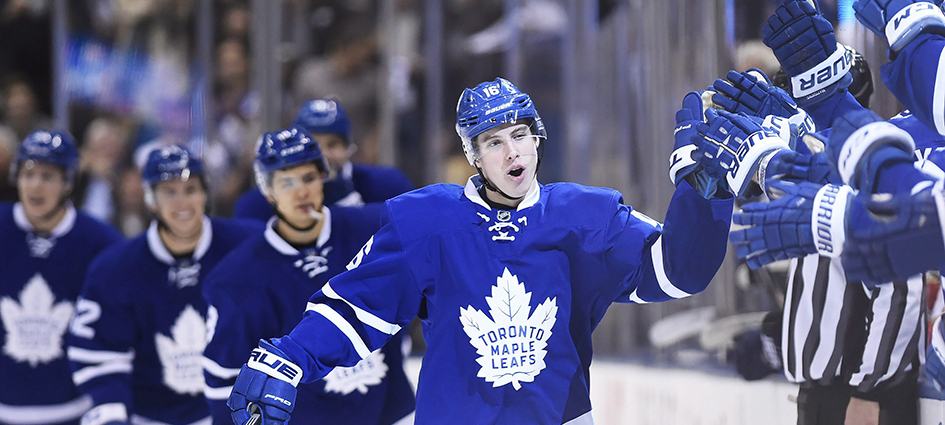
How player interviews are helping US and Canadian sports identify talent
- The Boot Room
- 07 November 2019
Talent identification experts working in baseball and ice hockey underline the benefits of using player interviews to learn more about potential signings.
Recruitment staff at Seattle Mariners baseball team and Toronto Maple Leafs ice hockey team have underlined the benefits of using individual player interviews to assess the character and personality of potential acquisitions.Joe Bohringer of the Mariners and Brandon Pridham of the Maple Leafs - who both hold the role of assistant general manager - outlined their recruitment processes to candidates on the 2019/20 UEFA Pro Licence course at St. George’s Park.
The purpose of the exercise was to share best practice between football and other sports.
“There are really three main avenues for us for identifying baseball talent. The first one is live interviews,” explained Joe Bohringer, Seattle Mariners’ assistant general manager.
“Each of our scouts can get a chance in certain parts of the playing pool - high school, college ranks or the kids in Latin America - to sit down and interview that player.
“It’s a baseball interview: what do they think their strengths are and what do they think the areas they need to improve are.
“You can have them walk you through their career highlight, career lowlight, how do they think they fit on the roster and all those types of things.”

Finding the right character to fit the team dynamic is key for Bohringer, who has thirty seasons of experience in professional baseball. Assessing character isn’t, however, left to one individual.
“We have a dedicated mental skills department,” explains Bohringer.
“We have four people that are scattered throughout our system that have training in a coaching or playing background but also have some sports psychology, some formal training, to allow them to do that.
“After the scout does the initial interview, we’ll often have an interest list given to our mental skills department and they’ll call and interview the players.
“The scout interview is more free flow - if it’s a high school kid we could be in the room with the kid and his parents, if it’s a university player we could be in with the player by himself or we can be in with the player and his coach.
“But when we kick the name to our mental skills department, they have a very regimented interview process. They’re asking the players the same questions, so they give the same interview for every player, to give them a baseline to compare.”
We’re really reliant on our scouts to give us this whole character background of the player
It's an approach adopted in ice hockey as well as baseball, as Brandon Pridham, Toronto Maple Leafs assistant general manager, explains.
“A big part of the job for our scouts is talking to the trainers of the [player’s current] team and the medical staff, talking to coaches then going and talking to families and teachers - really trying to get a feel for a player’s personality.
“We also have Dr. Meg Popovic who works for us and she’s the background psychologist. During the season she’ll do a Skype interview or sit and talk to a player in person.
“She’ll sit down and do a face-to-face analysis as well. We’re really reliant on our scouts and Dr. Meg to give us this whole character background of the player.”

However, Pridham, who has been with the team since 2014, was quick to stress that the player interview is only one part of identifying playing potential and not the sole measure.
“I know for a fact that there’s countless examples of kids that have been terrible interviewees.
“That’s why we only use the interview as a small piece. For 17-year-old kids, or players of any age, you don’t have to be a good interview to be a good hockey player, so we have to sift through that carefully.
“So, we’re always trying to manage these interviews of these young kids, just to give you more flavour of the individual.”
The FA Talent ID Conference is taking place on the 28th November at St. George’s Park. To learn more about this year’s theme, disruptive thinking in talent identification, follow @StGeorgesPark on Twitter and look for the hashtag #TalentID2019.
Joe Bohringer and Brandon Pridham were speaking to learners on The FA Level 5 (UEFA Pro) course.
Article image courtesy of Canadian Press/Shutterstock.


